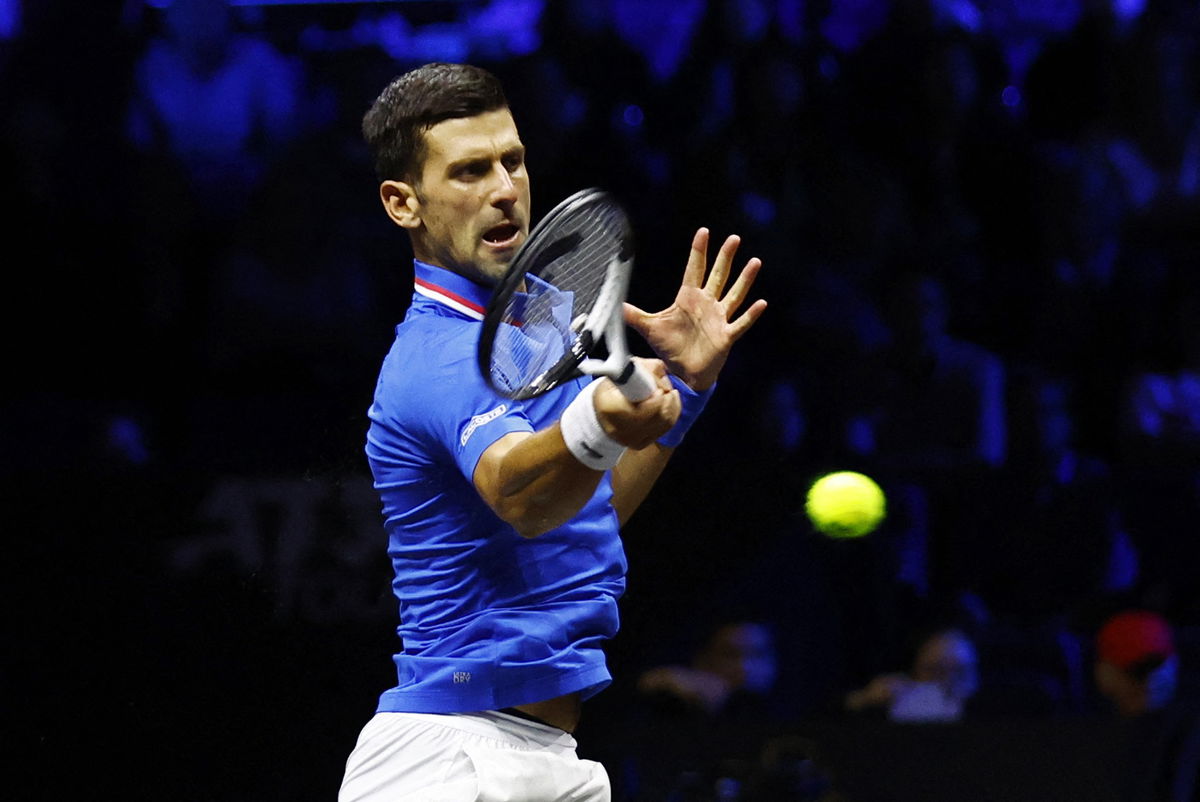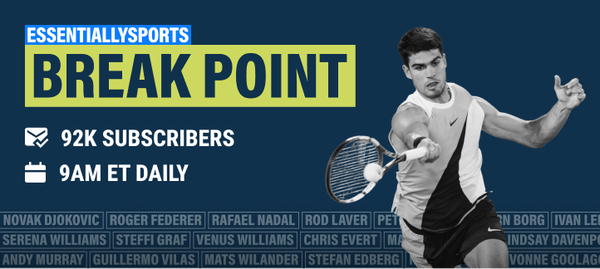
Reuters
Tennis – Laver Cup – 02 Arena, London, Britain – September 25, 2022 Team Europe’s Novak Djokovic in action during his match against Team World’s Felix Auger Aliassime Action Images via Reuters/Andrew Boyers

Reuters
Tennis – Laver Cup – 02 Arena, London, Britain – September 25, 2022 Team Europe’s Novak Djokovic in action during his match against Team World’s Felix Auger Aliassime Action Images via Reuters/Andrew Boyers
On the professional tennis circuit, there’s no one-size-fits-all approach to fueling peak performance. From Andy Murray’s reported 6,000-calorie intake to Novak Djokovic’s strict plant-based regimen and Rafael Nadal’s seemingly carefree approach to food, each player carves their own path. Even rising star Carlos Alcaraz, while claiming not to follow a rigid diet, has explored gluten-free options under the guidance of his physiotherapist. This begs the question: in such a diverse landscape, how truly essential are nutritionists for all athletes, and indeed, for the general population?
Watch What’s Trending Now!
Well, that’s exactly what former American pros like John Isner, Sam Querrey, Steve Johnson, and Jack Sock tried to understand in an episode of Nothing Major Podcast, dated April 8.
Isner spilled the beans on co-host Querrey’s strong opinion. And according to him, “tennis nutritionists, or just nutritionists in general, are completely useless”. Now are they?
Querrey weighed in saying, “Yeah”. But Isner gave his initial stance, saying, “I completely disagree.” He also revealed that Steve disagreed, too, with Querrey as he “shook his head.” Steve said, “Disagree wholeheartedly.” Isner then asked Sock, “where do you stand?” on this topic.
Seems like Sock also agreed with Querrey. “I think that’s completely useless, especially with the amount of information, the things you have online now, to other people. If you are in a sports specific or very specific, like, role for that nutritionist they’re traveling with you, they are helping you, like very specific needs, then maybe not as much. But yeah, a general nutritionist I think is completely useless.” Hearing him, Querrey got a lot of confidence to prove his point.

He said, “I mean, I understand if you are a weightlifter, trying to put on 90 pounds of muscle, okay? But why would anyone need a nutritionist? Like you know if you are not eating well. You need a nutritionist like to tell you what to eat? You know the candy bar is not good if you want to lose weight. You should go eat like carrots and broccoli. I mean, it’s not rocket science. Drink water, not soda.”
But then Steve (pro nutritionist) intervened. He argued, “There’s more science to it than you think.”
“There’s an intake of like fats, carbs to proteins, time of days.” Querrey opposed, “Not for that average person.” But guess what? Steve then presented his own case, while citing an example. “As a resident fatty on the podcast who lost a lot of weight thanks to Christian LoCascio (his nutritionist), I was on a strict regiment diet, time of day. You name it, he’s done it with multiple people….Look, it is a science you have to do it correctly.”
Sock then added, to prove his point, “That’s why I said it’s a very specific thing.” And guess what happened? By the end of this debate, Isner, who was against Querrey’s opinion on nutritionists, ended up agreeing with him. How come? He told Querrey, “You might have just swayed me to your side a little bit, Sam.”
But it doesn’t mean Steve is wrong in his take. In fact, a few years back, a strict nutritionist-guided diet helped him in his tennis endeavors. How?
The co-host of Nothing Major podcast, and former American tennis pro, was ranked as high as No.21 in his career. Over eight years ago, aged 27, he changed his lifestyle, especially the food he used to consume. Why? He gained a lot of weight. So he decided to become disciplined. But how?
He said goodbye to his favorite options, like burgers and fries. Result? In six months, he managed to rebuild his 6-foot-2 inch, 198-pound body into a 183-pound fit version, as reported by ESPN back in February 2017.
“This is my career, my profession,” he told ESPN back then. “I just want to get better as a tennis player — that’s the short-term and long-term goal. I need to turn over every stone possible, do everything in my power.”
Credit also goes to his nutritionist Christian LoCascio. The latter previously helped Mardy Fish lose 30 pounds after a knee surgery in 2009. To make a solid and fit return, LoCascio guided him through his recovery period. That’s when Johnson came in contact with LoCascio, thanks to Fish who’s his good friend.
When Johnson began his routine under LoCascio, he upped his daily intake to 3,000 calories. “The trick is to hold hard to a ratio between protein and carbohydrates,” he revealed. “It’s a formula that works with my body type. I’m a sucker for dinner rolls, but now that I have a better understanding of how it works, I just say no.”
Concluding his remarks, Johnson said, “I was in good shape, but now I’m in better shape. Now, if the tennis is not there, I know I can run and run and go figure it out on the fly.” Much like Steve, Djokovic transformed his life with the help of a nutritionist 15 years back.
Novak Djokovic’s life and career-changing gluten-free diet
Before the pivotal year of 2010, Novak Djokovic, despite securing his maiden Grand Slam title at the 2008 Australian Open, faced a significant hurdle: recurring mid-match collapses attributed to fitness limitations. A transformative moment occurred during a 2010 Davis Cup tie in Croatia.
It was there that Djokovic encountered Dr. Igor Cetojevic, a Serbian nutritionist, who identified sensitivities to both gluten and dairy. The initial prospect of eliminating dietary staples like pasta, cheese, and bread – a particularly challenging notion given his family’s ownership of a pizzeria – presented a considerable hurdle for the Belgrade native. Nevertheless, Djokovic embarked on a two-week trial of a strict gluten-free diet, yielding immediate positive effects.
Experiencing improved sleep, heightened energy levels, and enhanced agility, Djokovic was further convinced of the diet’s impact when the consumption of a bagel after the gluten-free period resulted in noticeable fatigue and a decline in his physical condition.
The culmination of his collaboration with Dr. Cetojevic in 2011 marked a dramatic shift in his career trajectory, as he captured three of the four Grand Slam titles, with only the French Open remaining elusive. In his 2014 book, Serve to Win, Djokovic wrote: “Suddenly there was an X factor, a change in my diet that allowed my body to perform the way it was meant to.”
What do you have to say about the concept of nutritionists in general? Do they really make a difference in one’s life? Let us know your thoughts in the comments below.


